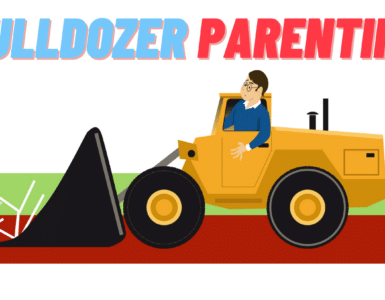So, you just found out that your teenager is having sex. If you found without them telling you first, you might be extremely upset at them for lying and sneaking around. If they told you themselves, you might be in shock.
It’s ok to have intense feelings about the situation, but it’s also essential that you approach this tactfully. Here are some tips to help you talk to your sexually active teenager.
Don’t Freak Out!
It’s ok to be upset or even sad when you first discover that your teenager is sexually active, but you must vent those negative feelings away from your kid. Speak to your partner, family members, or friends privately. Once you’re ready to talk to your teenager, you need to be calm.
If you’re yelling or losing your mind in front of your teenager after you just found out they had sex, they won’t trust you and will completely close off. They will end up hiding stuff from you and will not listen to anything you have to say.
ALSO: When to Have ‘The Talk’ About Sex
You might even push them further away from you and make them so upset that they do something risky or even dangerous.
If you have a partner or significant other, make sure they’re also calm when you both talk to your teenager.
Be Respectful & Honest
When you’re talking to your teenager after you have found out they have had sex, approach them respectfully. They should not be in trouble. Do not shame them, and do not make them feel bad. Remember that the goal of this discussion is to make sure they stay safe and make healthy choices. You want them to trust you so that they know they can come to you if they have any problems.
ALSO: Should Parents Allow Teens to Drink at Home?
Be honest with them. If you found out accidentally or because someone else told you, tell them how you found out and assure them that you’re not mad; you just want to make sure that they stay safe.
Really Listen
Listen to what your teen has to say. Ask open-ended questions and acknowledge their thoughts, feelings, and opinions. They need to feel respected and validated if you want them to be open with you and trust you.
Consent is Key
Make sure that your teen is having sex because it was their choice and not because they were coerced or manipulated. Remind your teen that sex should always be consensual, and they have the right to say “no” at any time, even in the middle of sex.
Make Sure That Your Teenager Is Well-Schooled on Human Sexuality
Hopefully, you started teaching your teen about sex when they were still young. Comprehensive sex education is so important because it helps children stay healthy and safe. It also empowers them and gives them a better chance at having healthy and loving relationships.
If you haven’t spoken to your teenager about sex before, this talk is going to be a bit more awkward, but you can still educate your teen about safe sex, consent, sexual identities, STIs, abusive partners, pregnancy, sexual harassment, pornography, and sexual orientations.
You don’t need to cover all these topics in one conversation, but make sure that you discuss them all eventually. Your teenager might think they already know everything they need to know about sex, but they don’t. Unless you’re living in one of those countries that have comprehensive sex education in school, your teenager has mainly learned about sex from friends, pornography, and you.
ALSO: You Should Encourage Your Teen to Travel After High School
Amaze has some great resources for parents to help with educating kids of all ages about sex. It’s helpful to have all of the important topics in one place so that you know you’ve covered everything.
If your teen really does not want to learn about sex from you, or you just want to make sure that your teen is well-schooled on sexuality, you can take them to the bookstore and buy them a few of these sex-positive books that are inclusive of different expressions of gender and sexuality.
Help Them Buy Contraception
Talk to your teen about different contraception choices. Help them get whatever contraception they want. Remind them to always use a condom no matter what. Buy them a variety of different condoms to try, even if they roll their eyes! It’s better to be safe than sorry.
Remind Your Teen to Get Tested
If your teenager is sexually active, they should be getting tested regularly for STIs. If they have one partner, they should get tested at least once a year. If they have different partners, then they should get tested every 3-6 months.
Really Stress the Importance of Knowing the Signs of an Abusive Partner
According to the CDC, 41% of women and 26% of men have experienced abuse, violence, or stalking from an intimate partner. This is a huge problem all around the world. The only way to prevent intimate partner violence and emotional abuse is through education. Make sure that your teenager knows the warning signs of an abusive relationship and knows to cut that person off immediately as soon as they see red flags.
Tell Your Teenager That You Love Them and Accept Them
You should love and accept your child no matter what. That is what being a parent is. It may not always be easy, but that’s what you signed up for when you decided to have a child in the first place.
ALSO: Parenting Style — Are You Authoritative, Permissive, or Authoritarian?
Make it clear to your teenager that they can come to you no matter what. You want them to be safe, and you want to help them if they are ever confused, hurt, or in trouble. Assure them that you love them and accept them just as they are and will still love them and accept them no matter what their sexual identity and orientation are.
By responding compassionately, honestly, and lovingly towards your teen once you find out that they are sexually active, you will create a stronger bond with them and a stronger sense of trust and communication that goes both ways. You will also be helping them stay safe as they navigate the world of sexuality and relationships.











Add comment